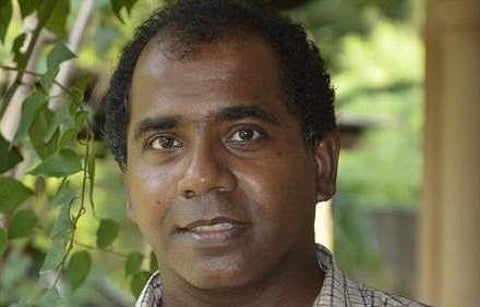

COLOMBO: The Alliance for Economic Democracy (AED) has described Sri Lanka’s budget for 2017, presented to parliament on November 10, as pro-rich and anti-poor, thus challenging Finance Minister Ravi Karunanayake’s claim that it is meant to “accelerate growth with social inclusion.”
In a statement on the budget, the AED points out that Karunanayake’s proposals for taxation, increasing investment (both domestic and foreign), and expanding social services indicate a desire to cater to the rich rather to meet the needs of the poor.
“Disguised as expenditure on public services, the Government has allocated amounts for privatising education and health, pensions and social welfare funds. Instead of proposing plans to strengthen public education and health, it is spending state funds to encourage setting up of private institutions. While providing large businesses with concessions and tax holidays, the Government complains that funds are insufficient to boost production and incomes of farmers, fishermen, small enterprise owners and ensure fair wages for plantation and industrial workers,” the AED said.
“Over the years, agriculture, fisheries and small and medium enterprises have received dismal amounts in the budget and yet again, the government has failed to propose a plan for improving production and creating employment in these sectors,” it added.
It pointed out that this is in line with the trend in Sri Lanka in which state expenditure, as a proportion to GDP, has consistently declined over the last few decades. It is also low compared to state spending in most other countries.
Economic policy ‘experts’and the IMF insist on reducing the budget deficit. The government can reduce budget deficits by increasing revenues, particularly through raising direct taxes. Instead, it is increasing indirect taxes, including VAT, which will burden the lower-middle class and poor sections of society, AED points out.
The Government’s keenness on push trade liberalisation policies, inevitably contradict efforts to increase direct taxes. Lowering of tariffs and tax concessions for the corporate sector and foreign investors become the norm.
Although the Finance Minister said it was a “people’s budget,’’ the only instance the people are given priority is by placing the onus on them for generating tax revenues. In fact, the bulk of the tax revenues are collected through taxes on Goods and Services imposed on the people, AED says.
The increase in indirect taxes and cuts to state spending will shift the cost of essential services on to the people. Drastic increases in the costs of state services such as electricity, fuel and water can also be expected due to “cost-reflective pricing” and privatisation measures in the years ahead.
Finally, the government proposes to change the “stringent and archaic labour laws” in the country to promote new jobs. However, a majority of formal sector workers are in labour-intensive industries where their rights are constantly threatened by employers who evade labour regulations. The government’s rhetoric about creating “flexible labour” plays into the employers’ hands, while undermining the role of regulatory institutions such as the Labour Department.
Active demands of the of the workers to increase wages, provide cost of living relief, safeguard employee funds and reduce precarious labour have not been met. In contrast, the labour law reforms proposed in the budget will increase precariousness in people’s employment.
The budget is even setting a precedent by establishing a Financial Assets Management Agency and using state funds to bail out and rescue ailing financial institutions. Wealthy investors make quick profits through financial speculation and exit before a crisis.
The economic costs of the crisis, however, are transferred to those in the lower strata of society, whether in the form of bank bailouts, hidden corporate subsidies, or a general decline in services, AED said.